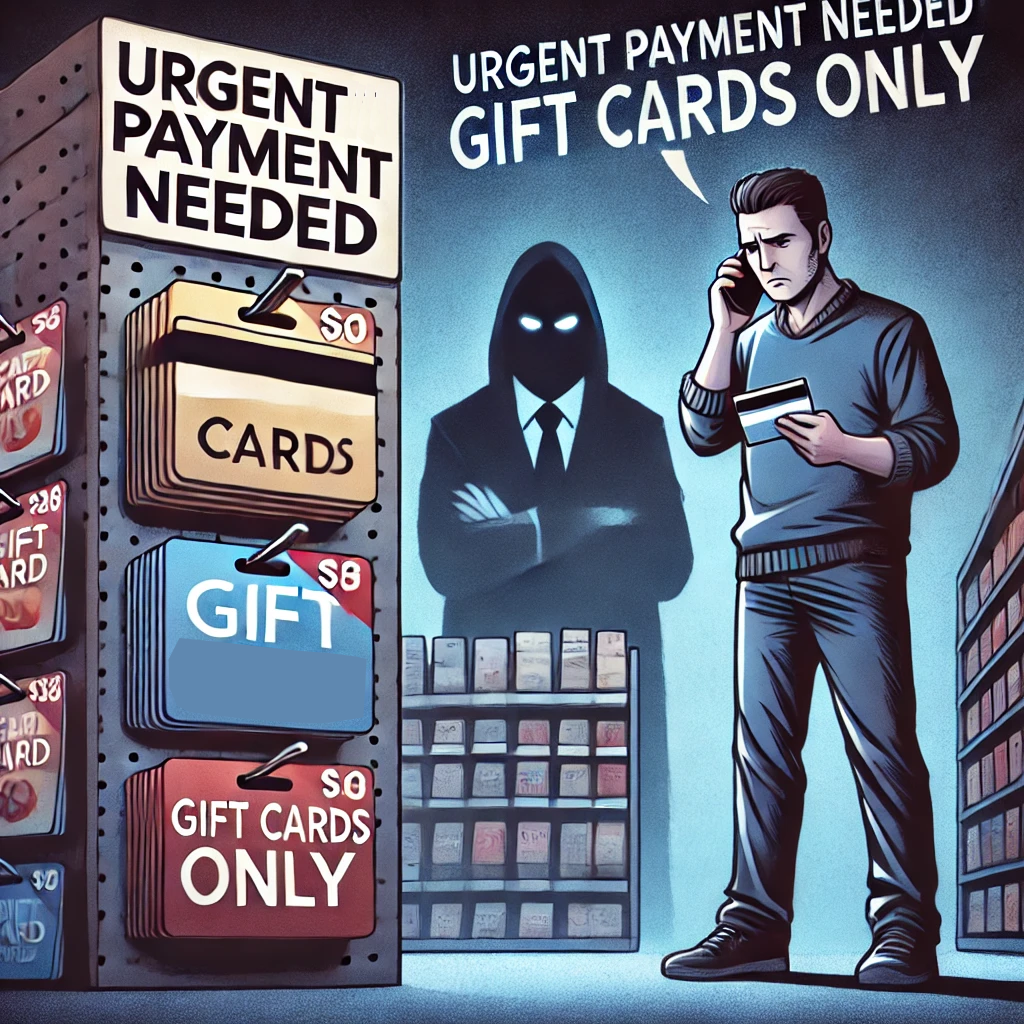Scams come in many forms, but they all have one goal: to steal your hard-earned money. Despite warnings and the abundance of information available, people continue to fall for some of these traps. Here’s a look at the top 10 scams that still catch people off guard, along with tips on how to spot and avoid them.

1. Multi-Level Marketing (MLM) Schemes
MLMs are everywhere, and despite numerous exposes and documentaries highlighting their deceptive nature, they continue to trap thousands of people. These schemes often target low-income individuals, particularly stay-at-home parents, by promising a way to earn money from home. In reality, most participants end up spending more on products and fees than they ever make in profits.

2. Gift Card Payment Scams
One of the most puzzling scams people still fall for is the demand to pay debts, often to the IRS or a utility company, using gift cards. The scammer calls, claims you owe money, and insists you buy gift cards and share the codes as payment. Legitimate companies and government agencies never ask for gift cards, so any such demand is a red flag.

3. Fake Investment Opportunities
From cryptocurrency scams to unregistered investments, fake opportunities abound. These scams lure people with promises of high returns and exclusive deals. Unfortunately, many lose their savings when the scammer vanishes, leaving behind nothing but empty promises. Always research and consult a financial advisor before investing. Anything that offers a “guaranteed” return above 7 percent should always be run by an investment advisor.

4. Romance Scams
This emotional con continues to devastate lives. Scammers create fake profiles on dating apps or social media, establishing trust over weeks or months. Once the victim is emotionally invested, the scammer invents an urgent need for money, often for medical emergencies or to pay for a trip to visit. The victim sends money, but the “lover” is never real.

5. Fake Check Scams
You receive a check in the mail and are asked to deposit it and then wire part of the money elsewhere. The check looks legitimate, and your bank may even temporarily credit your account. But days later, the check bounces, and you’re on the hook for the full amount. Remember, if it sounds too good to be true, it probably is.

6. Timeshare Scams
Timeshares were once marketed as smart investments for vacationers, but they’ve become notorious for locking people into lifetime contracts with escalating fees. Scammers prey on desperate timeshare owners who want out, offering fake “exit services” for a hefty fee. In most cases, the scammer disappears with the money, leaving the owner trapped.

7. “You’ve Won!” Scams
You’re informed you’ve won a lottery, sweepstakes, or big prize, but there’s a catch: you need to pay taxes or fees upfront. Scammers use the excitement of winning to pressure you into sending money quickly. The reality is, if you have to pay to claim a prize, it’s a scam. Legitimate lotteries don’t require payment for winnings.

8. Emergency or Grandparent Scams
In this heart-wrenching scam, someone pretending to be a relative, often a grandchild, calls in a panic, claiming to be in trouble and in need of money. The scammer may say they’ve been in an accident or arrested and beg you not to tell other family members. Before sending money, always double-check with someone who can confirm the situation.

9. Phishing and Identity Theft
Phishing scams trick people into sharing sensitive information by pretending to be a trusted entity, like a bank or government agency. Scammers send emails or texts with links that lead to fake websites, where you’re prompted to enter personal details. Once they have this information, they can drain your accounts or commit identity theft. To avoid these never follow links on your phone or from emails, always navigate to the official website if you think the information may be correct.

10. Fake Charity Scams
These scams spike after natural disasters or during the holidays, preying on people’s generosity. Scammers create fake charity websites or call asking for donations. Always verify charities through platforms like Charity Navigator or check with the IRS to ensure your money is going to a legitimate cause.
Protecting Yourself from Scams:
- Be skeptical of unsolicited offers or urgent requests for money.
- Never send payments via gift cards or wire transfers.
- Research companies or individuals before giving money.
- Consult trusted friends or family if something feels off.
Even in the digital age, scammers are relentless in their pursuit to exploit our trust and emotions. Stay informed and cautious to keep your money safe.





